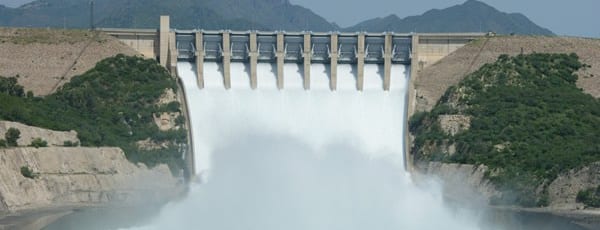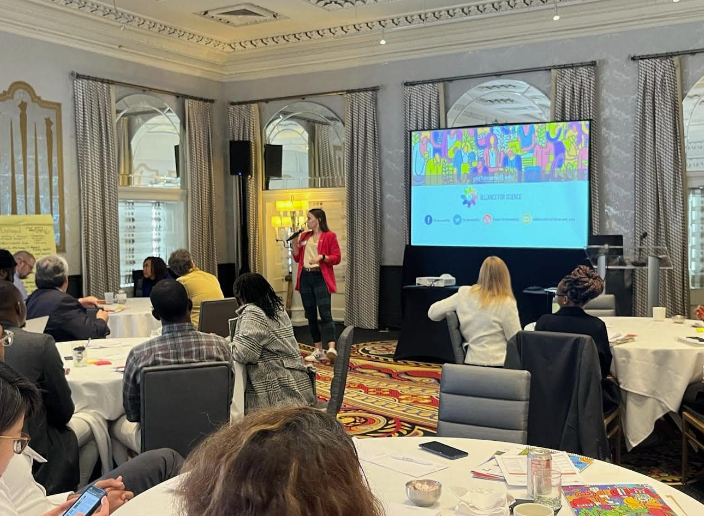Infrastructure development is a major issue in many countries of the developing world. Countries with developing economies often suffer from a negative balance of trade and weak institutions, making lenders unwilling to lend. Governments of these countries are forced to borrow with heavy interest rates, further increasing budget deficits. This cyclical economic problem is ubiquitous in many parts of the developing world. One approach being taken to tackle this issue is crowdfunding infrastructure projects.
My home country, Pakistan, has utilized crowdfunding as part of a novel approach to tackle the issue of a nationwide water shortage. Pakistan's water reserves have been drying up rapidly in the past 30 years. In the time between 1990 and 2005, Pakistan went from crossing the water stress line to crossing the water scarcity line according to the United Nations Development Program (UNDP). The Pakistani government's response to this problem has been to identify the construction of new dams as vital and urgent. In July of this year, the chief justice of the Supreme Court of Pakistan, while hearing a case on the construction of a dam, decided to set up a public fund to collect money for the building of two other dams which will be known as Diamer-Bhasha and Mohmand. In September, after the election of a new government, the Prime Minister, Imran Khan, decided to support the fund, setting up what is called the PM & CJ Dam Fund.

The idea behind the fund is very simple. Government institutions are weak, tax systems are inefficient and, due to rampant corruption, public trust in the tax system is low. As a result, citizens of Pakistan rampantly evade taxes, taking any increase in taxes out of the question. A fund set up with a single point agenda such as this reduces red tape because it bypasses these corrupt institutions. Furthermore, there is a very large Pakistani diaspora spread out over the world, and one of the highest sources of income for the country is in the form of remittances. The government hopes to rely on the Pakistani diaspora to donate to the dam fund in patriotic fervor. Additionally, Pakistan's newly elected prime minister carries goodwill and the chief justice is popular in certain demographics in society. As a result, many people who would otherwise be unwilling to pay taxes are willing to donate to a fund set up with a visible deliverable: a dam.
The proposed program to crowdfund a dam, however, does not have universal support in Pakistan. Many politicians have pointed out that the fund is essentially a charity, thus an unsustainable way for a government to operate. These politicians have also suggested that this particular water shortage problem can be remedied by the government strengthening the tax collection system which is further undermined by the dam fund. If the ruling government itself does not believe in the efficacy of tax collection, it cannot expect its citizens to do so either. Some experts have also argued that the cost of building two dams is too much to be covered through crowdfunding schemes and that the Pakistani government should turn to financing instead of cooking up seemingly populist schemes which may ultimately be ineffective.
Personally, I do not view the crowdfunding scheme as a sustainable way forward for Pakistan. Even if the government manages to reach its goal and raises the funds necessary for the dam construction, the government should also attempt to shore up the tax system. Institutional strength is one of the hallmarks of a developed economy; a strong tax collection system in Pakistan will mean a stronger economy for the country. For the time being, however, crowdfunding mechanisms can be used as a supplement, especially in cases of recovery from natural disasters and/or local infrastructure projects. It will be interesting to see how the crowdfunding policy pans out and what lessons Pakistan, and potentially other countries with developing economies, can learn from this case for the future.
 Zaka Asif is a first year doctoral student rotation through different labs in the ILS program. When I am not working in my lab, I can be found driving around, watching/playing soccer or cricket, playing pool, cooking or just lazying around in bed. More from Zaka Asif.
Zaka Asif is a first year doctoral student rotation through different labs in the ILS program. When I am not working in my lab, I can be found driving around, watching/playing soccer or cricket, playing pool, cooking or just lazying around in bed. More from Zaka Asif.
About the Author
-
athenssciencecafehttps://athensscienceobserver.com/author/athenssciencecafe/April 17, 2020
-
athenssciencecafehttps://athensscienceobserver.com/author/athenssciencecafe/April 12, 2020
-
athenssciencecafehttps://athensscienceobserver.com/author/athenssciencecafe/April 3, 2020
-
athenssciencecafehttps://athensscienceobserver.com/author/athenssciencecafe/March 30, 2020







